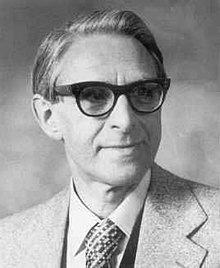
Klaus Roth
Mathematician, Academic
1925 –
Who is Klaus Roth?
Klaus Friedrich Roth is a German-born British mathematician known for work on diophantine approximation, the large sieve, and irregularities of distribution. He was born in Breslau, Prussia, but was raised and educated in the UK. He was pupil at St. Paul's School in London from 1939 to 1943 and then attended Cambridge University, graduating from Peterhouse, Cambridge in 1945. In 1946 he began research at University College London, under the supervision of Theodor Estermann.
In 1952, Roth proved that subsets of the integers of positive density must contain infinitely many arithmetic progressions of length three, thus establishing the first non-trivial case of what is now known as Szemerédi's theorem. His definitive result, now known usually as the Thue–Siegel–Roth theorem, but also just Roth's theorem, dates from 1955, when he was a lecturer at University College London. He was awarded a Fields Medal in 1958 on the strength of it. He became a professor at University College London in 1961, and moved to a chair at Imperial College London in 1966, a position he retained until official retirement at 1988. He then changed his status to visiting professor and remained at Imperial College until 1996.
We need you!
Help us build the largest biographies collection on the web!
- Born
- Oct 29, 1925
Wrocław - Religion
- Judaism
- Ethnicity
- Germans
- Nationality
- United Kingdom
- Germany
- Profession
- Education
- Peterhouse, Cambridge
Submitted
on July 23, 2013
Citation
Use the citation below to add to a bibliography:
Style:MLAChicagoAPA
"Klaus Roth." Biographies.net. STANDS4 LLC, 2024. Web. 30 Apr. 2024. <https://www.biographies.net/people/en/klaus_roth>.

Discuss this Klaus Roth biography with the community:
Report Comment
We're doing our best to make sure our content is useful, accurate and safe.
If by any chance you spot an inappropriate comment while navigating through our website please use this form to let us know, and we'll take care of it shortly.
Attachment
You need to be logged in to favorite.
Log In